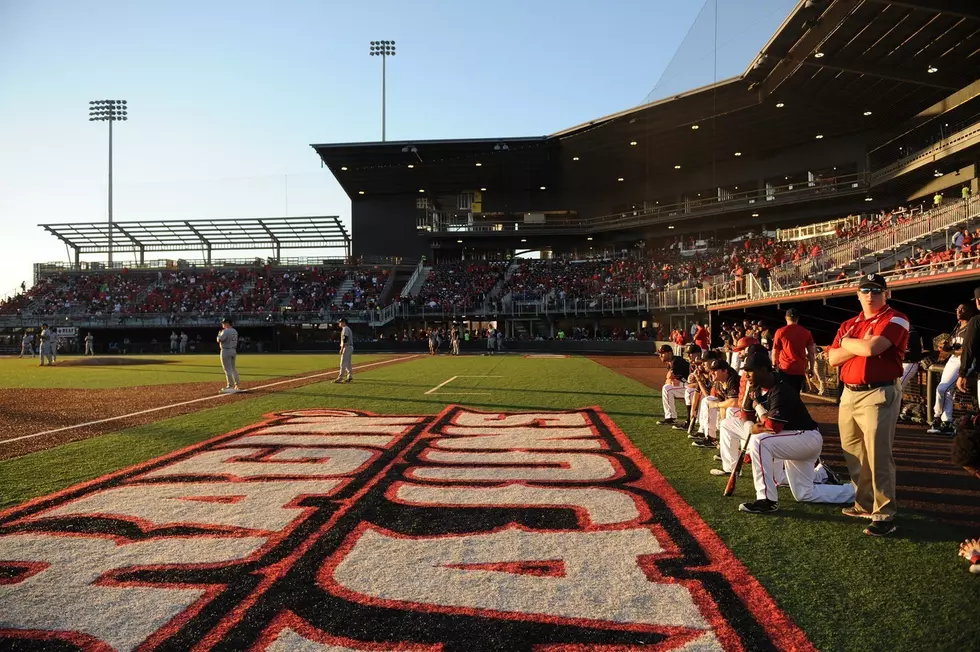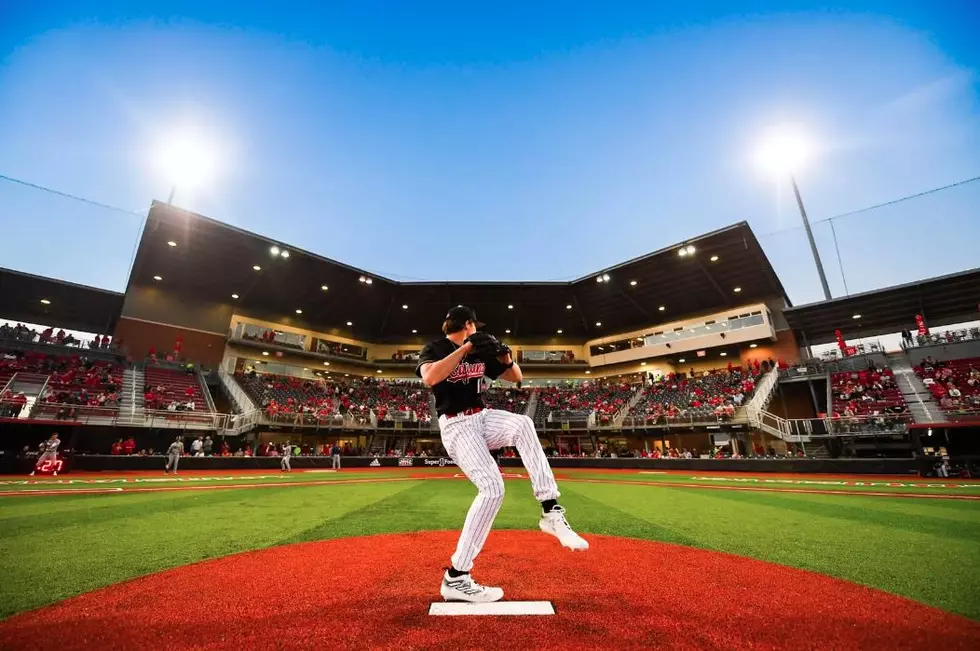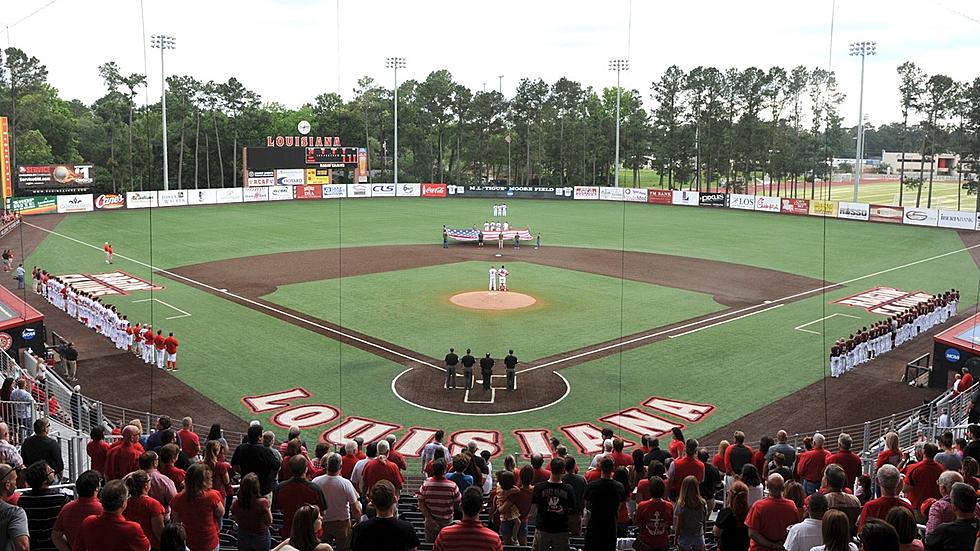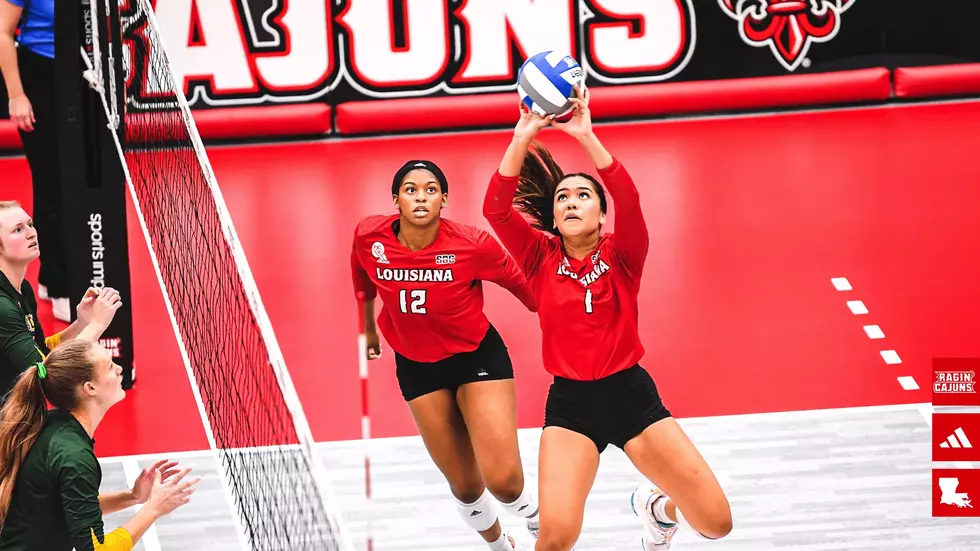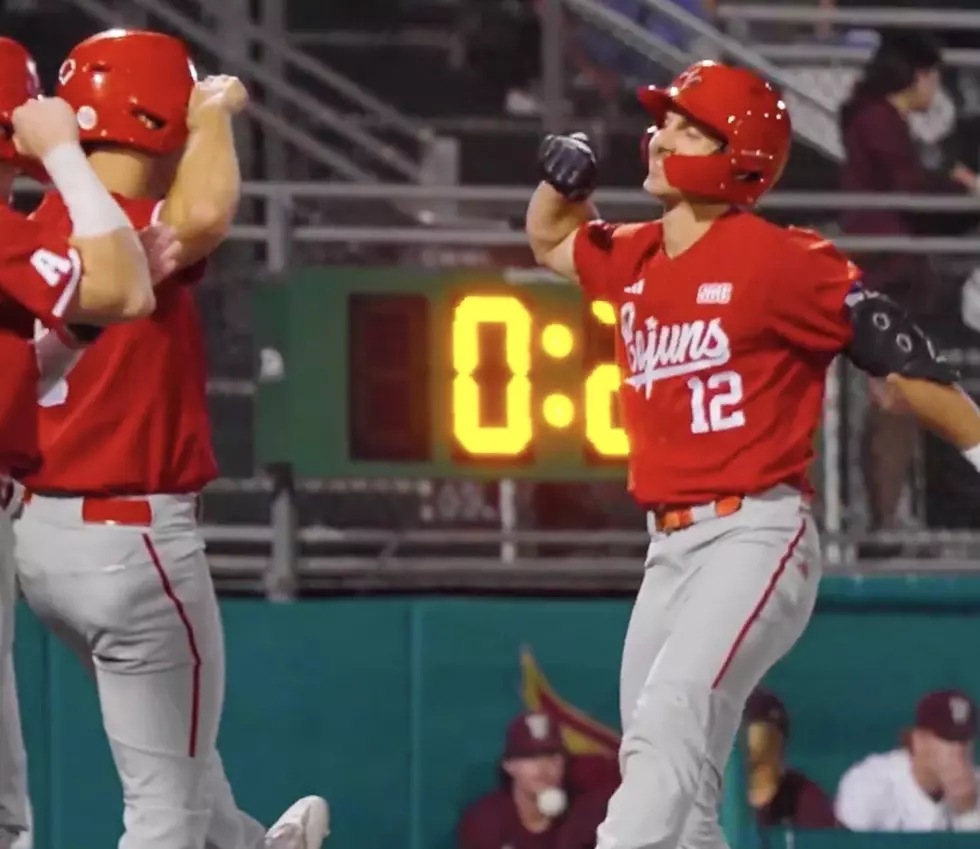
Jay’s Memorable Moment #3 – SAFE!!!
Louisiana 5, Clemson 4
Men's College World Series
Johnny Rosenblatt Stadium, Omaha NE
June 14, 2000
When Louisiana knocked off the best baseball team on the planet to get to Omaha, no one (other than the Cajuns and their fans) were happier than Clemson. And, to understand that, you have to understand the dynamic of that rivalry. It's perhaps the most underrated rivalry in college sports. The two schools play in football every year. They play in basketball. They play in baseball.
And, they hate each other.
South Carolina fans rejoice every time Clemson loses and vice versa. And, after all the publicity during their 50-6 regular season and the way they breezed through their regional, Clemson was tired of hearing about how good South Carolina was.
When the Cajuns won, Clemson rejoiced. Not only because the Gamecocks weren't going to Omaha while the Tigers got their berth, but also because of who they lost to.
You guys lost to WHO? Ooh-la-la??? HA-HA-HA!
Clemson defeated San Jose State in their first game at the College World Series, but then lost to Stanford. The Cajuns did the same, in a different order, falling 6-4 to Stanford and then beating San Jose State behind Scott Dohmann and Gordon O'Brien, 6-3, to set up an elimination game for Tuesday, June 13th.
But, that game was rained out and it worked to the Cajuns' favor. It meant Tony Robichaux could bring back game one starter Justin Gabriel (9-4), who struggled with his control in the loss to Stanford, walking seven in 3.1 innings.
After hot temperatures the first four days of the College World Series, Tuesday's storms brought considerably cooler weather, with game time temperatures at 64 degrees and a stiff wind blowing out to right-center field.
Clemson started Jarrod Schmidt (9-0) who was making his first appearance in the College World Series. The two pitchers were in control over the first three innings, with the Cajuns getting two hits and Clemson just one. The Tigers threatened in the fourth when Patrick Boyd doubled and Khalil Greene walked. A sacrifice moved the runners to second and third but Gabriel struck out the next two batters to get out of the inning.
Schmidt retired the first two batters in the fourth inning but then Will Hawkins got a 1-1 pitch into the jet stream in right-center to give the Cajuns a 1-0 lead. Two pitches later, Tommy Clark hit one almost in the same spot to increase the Cajuns lead to 2-0.
Gabriel retired the Tigers in order in the fifth. In the bottom of the fifth, the Cajuns manufactured a run that had the crowd talking the rest of the time the Cajuns were in Omaha.
With one out, Steven Feehan laid down a perfect bunt down the third base line for a base hit. After Ryan Gill flied out, Feehan stole second and went to third on a throwing error by catcher Brian Ellis. Nathan Nelson walked and stole second on the first pitch.
Schmidt elected to pitch from the windup. And, things fell into place after that.
Tony Robichaux said to me later if you're going to put a play on with a runner at third base, you have to have the pitcher pitching from the windup.
Check.
You've got to have not only a fast runner at third, he also has to be able to get a good jump.
Check.
And, finally, the pitcher has to be a "yes man." By that, Robichaux means the pitcher has to be one who, after getting the signal from the catcher, nods his head. Almost any pitcher, after nodding, goes right into his windup. Once he does, he's committed to pitch to the plate. That nod gives the base runner an extra half second or so to get his start.
Check.
Schmidt nodded and Feehan took off. Danny Massiatte, who was batting, swung over the pitch to protect the runner, but it didn't matter. Feehan stole home easily and the Cajuns led 3-0.
In the sixth, Clemson got two runners on via an error and a walk, but the two happened with two out and a ground out ended that threat. The Cajuns went in order in their half of the sixth.
The Cajuns were cruising. Gabriel was cruising as well, giving up only two hits through the first six innings.
But in the seventh, Clemson got things going, with a little help from the Cajuns.
Gabriel walked the first two batters and DH Bradley LeCroy, the number eight hitter, bunted them into scoring position. That brought up the catcher Ellis, who grounded to first base. But Scott Atwood booted the ball, allowing two runs to score. Casey Stone popped up for the second out, but Patrick Boyd singled to left field, moving Ellis to second. That ended Gabriel's day. He had given up only three hits in 6.2 innings. Gordon O'Brien came in and threw a wicked curve in the dirt, allowing the runners to move up. That brought up Greene, and the Clemson third baseman laced a double down the left field line to score to runs, and just like that, the Cajuns were on the wrong end of a 4-3 score.
After the Cajuns went out in order in the bottom of the seventh, Clemson threatened again in the eighth against O'Brien and lefty Brian Babin, but the Cajuns got out of it.
Clemson closer Steve Reba came on in the bottom of the eighth and the Cajuns got a pair of two out singles. But Clark flied out to left center and the Cajuns were down to their last three outs.
In the top of the ninth, Trey Bullinger came on to pitch and walked the first batter. A sacrifice moved him to second and Greene was intentionally walked. Bullinger struck out cleanup hitter Jeff Bailey, but then hit Ryan Riley with a pitch to load the bases. Clemson was one hit away from putting the game out of reach, but Bullinger struck out the next hitter on a 2-2 pitch, leaving the bases loaded.
One last chance for the Cajuns, but the bottom three in the order were coming up.
Designated hitter Jarvis Larry, who was the leading hitter for the Cajuns in the CWS, worked a walk on a 3-2 pitch. Robichaux went to his bench for Neil Simoneaux to bat for Atwood . Simoneaux bunted down the first base line to move Larry into scoring position.
That brought Jack Leggett out of the Clemson dugout and he chose to bring in his ace, Ryan Mottl, who was the winning pitcher on day one.
Rick Haydel was next. Although he hit in the #9 spot, the Cajuns shortstop had been a clutch hitter all season, including the game winning double in the deciding game of the Super-Regionals. Haydel looked for a fastball and lined it into left field for a base hit. But the ball was hit so sharply that even the daring Wade Simoneaux had no choice but to hold Larry at third.
That turned the lineup over and Steven Feehan was the hitter. With runners at the corners, Clemson played the infield at double play depth.
Those who watch Cajuns' baseball today know Robichaux has no problem with the squeeze bunt. But back then, Robe wasn't one to suicide squeeze. He was, however, willing to bunt in this particular situation, particularly with the double play in order. Feehan bunted Mottl's first pitch down the first base line as Larry streaked home from third. Mottl's only play was to first base, but second baseman Ryan Riley was late getting to the bag and the ball headed into foul territory in right field.
Haydel never slowed. He headed to third base to see Simoneaux windmilling him around third.
"I figured he'd either be safe or out," Simoneaux told me later.
The throw to the plate got there before Haydel, but it was to the first base side. Ellis, the catcher, pivoted and made the tag.
Credit home plate umpire Al Davis. With the ball arriving first, a lesser umpire might have anticipated the play. But he saw that when the tag was made, Haydel's hand was in the middle of home plate.
Davis signaled safe and the Cajuns dugout exploded.
Robichaux jumped high in the air. Haydel got to his feet and jumped as well. The Cajuns hugged each other as Clemson walked dejectedly to the dugout.
Unfortunately, there was one ugly moment when outfielder Casey Stone hit the Cajuns' Ryan Gill from behind. Stone received a one game suspension for the next postseason.
I loved two stories that were relayed to me later.
One person told me he was driving on Highway 14 outside of Kaplan. As he listened to the game winning call, he saw a farmer get out of his combine and start jumping up and down.
Another happened on the Causeway (WWL carried the game.) Cars in both directions started blowing their horns.
And, I am sure there was another place where people were happy.
That would be Columbia, South Carolina.
Within ten days, the Cajuns managed to have everyone in the Palmetto State both love and hate them at the same time.
More From 103.3 The GOAT

